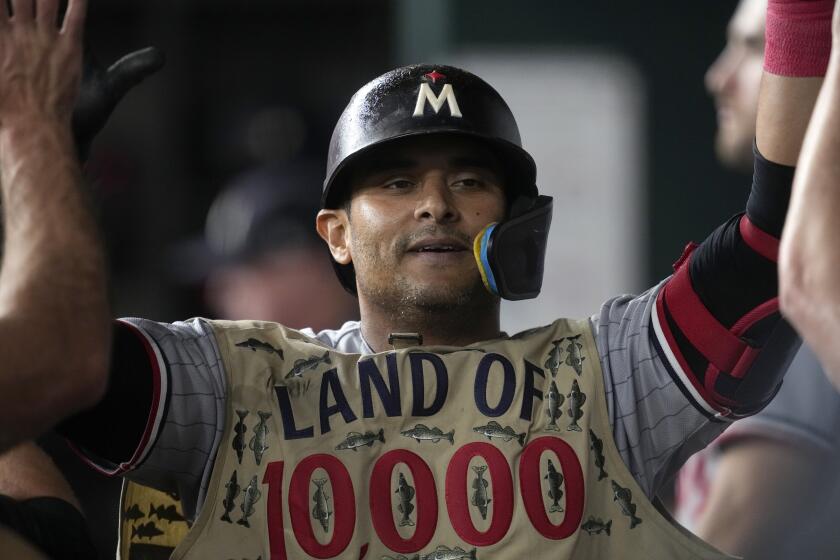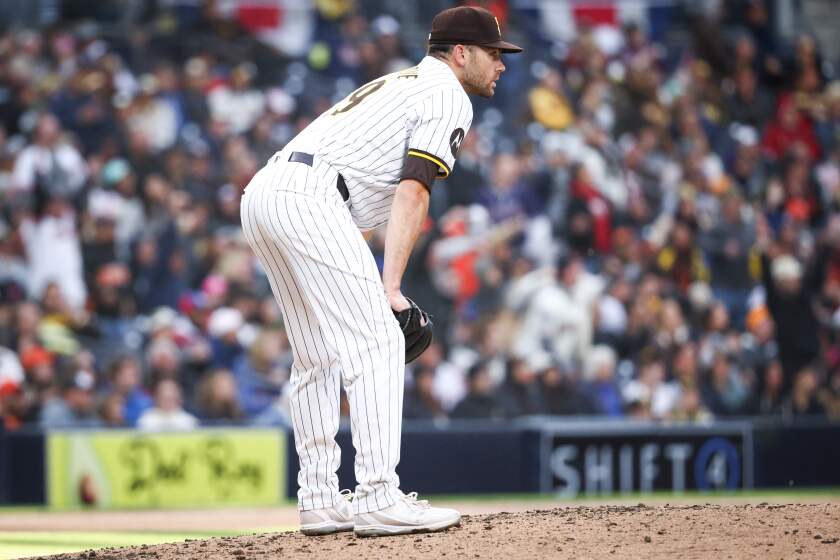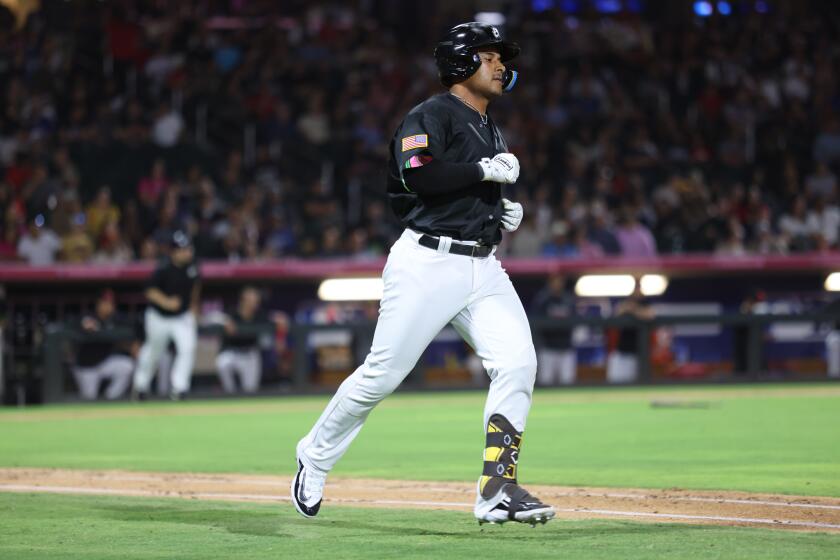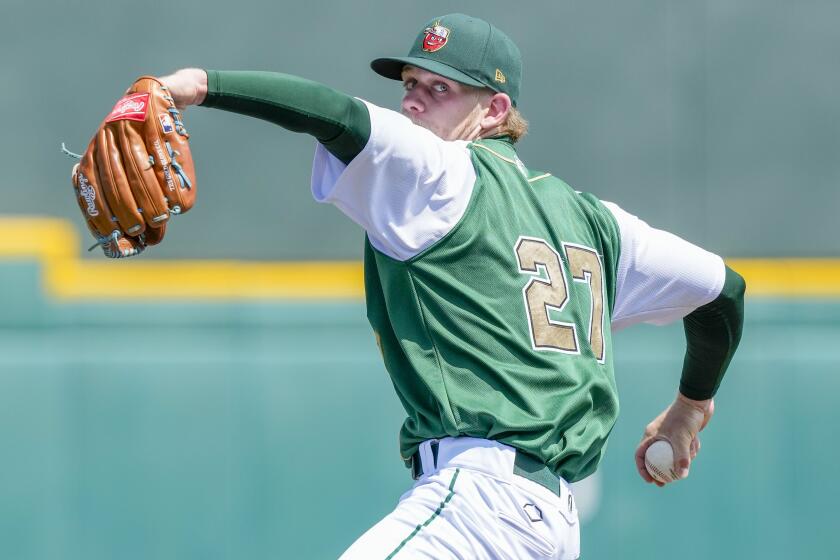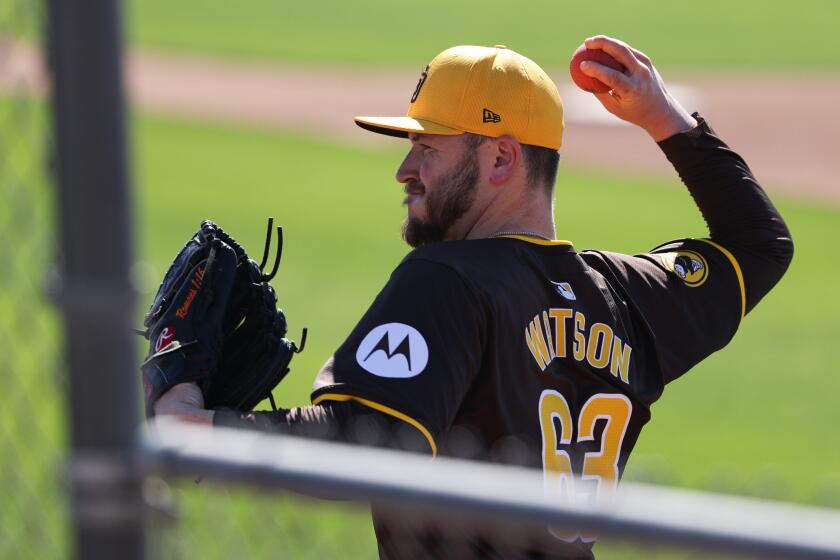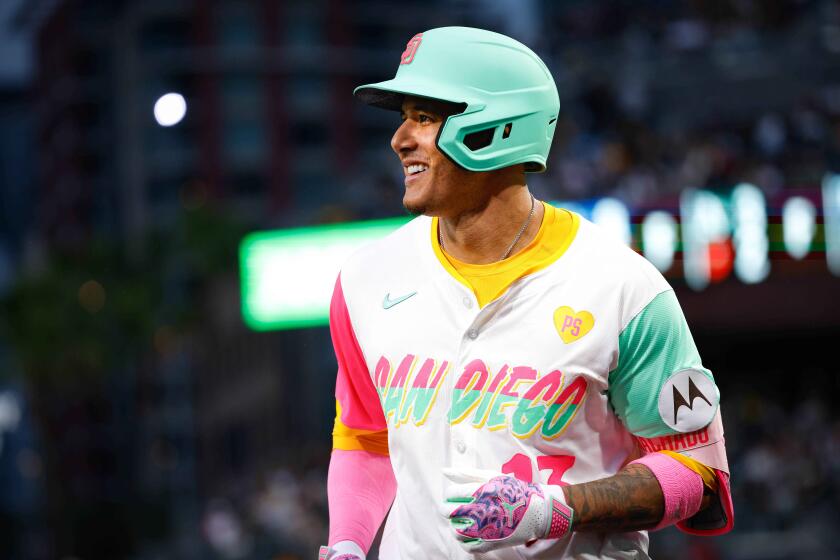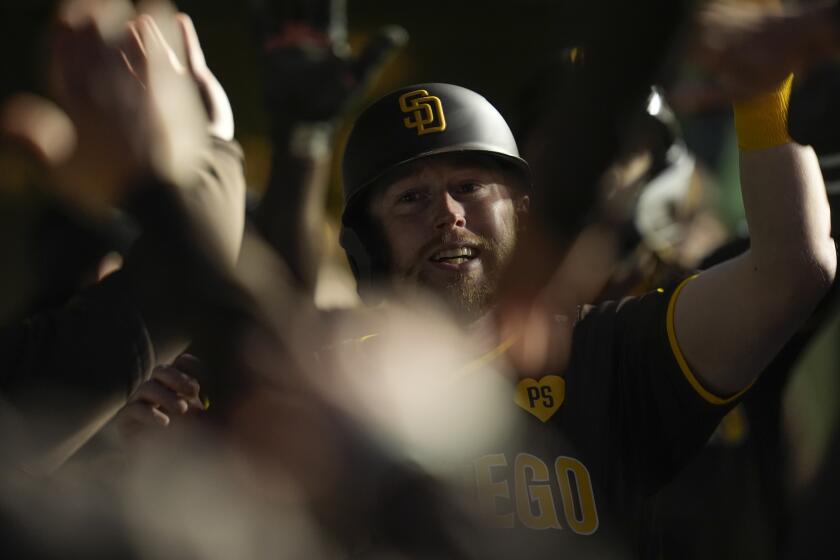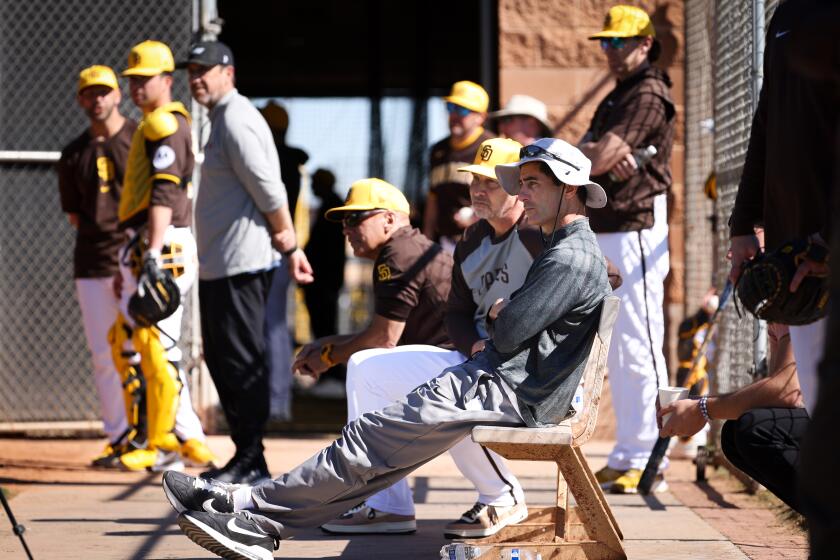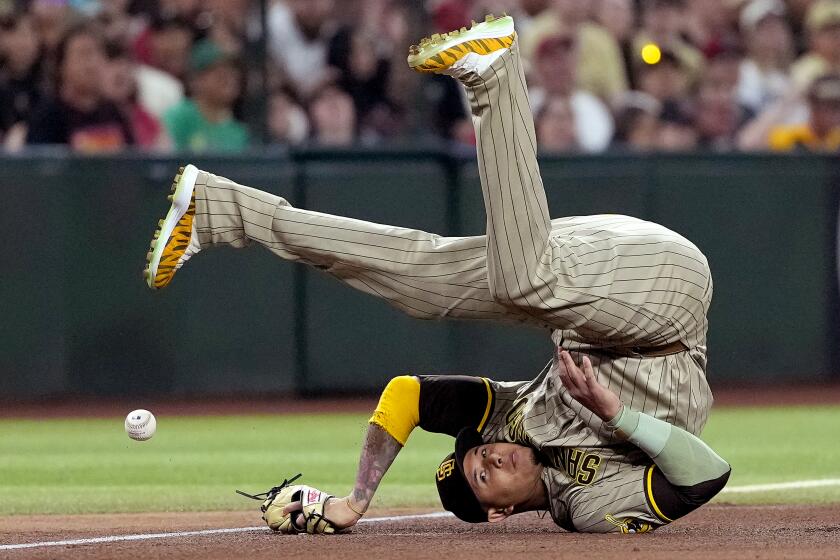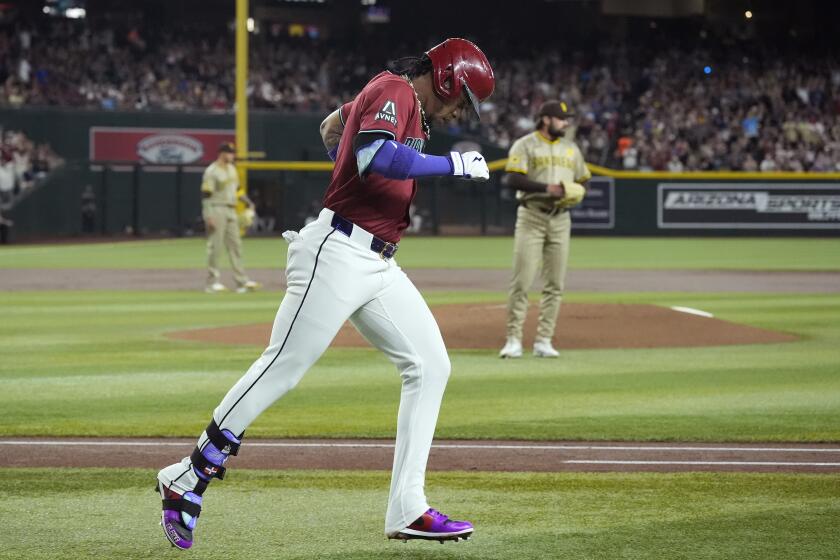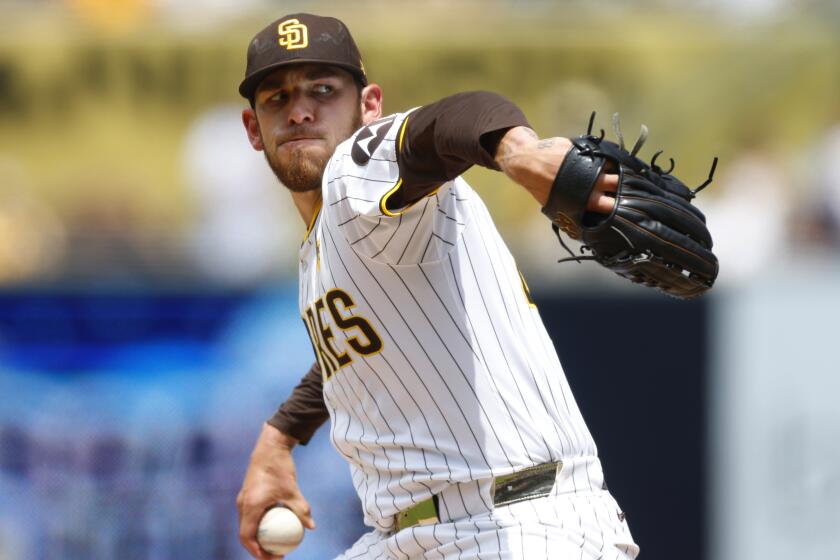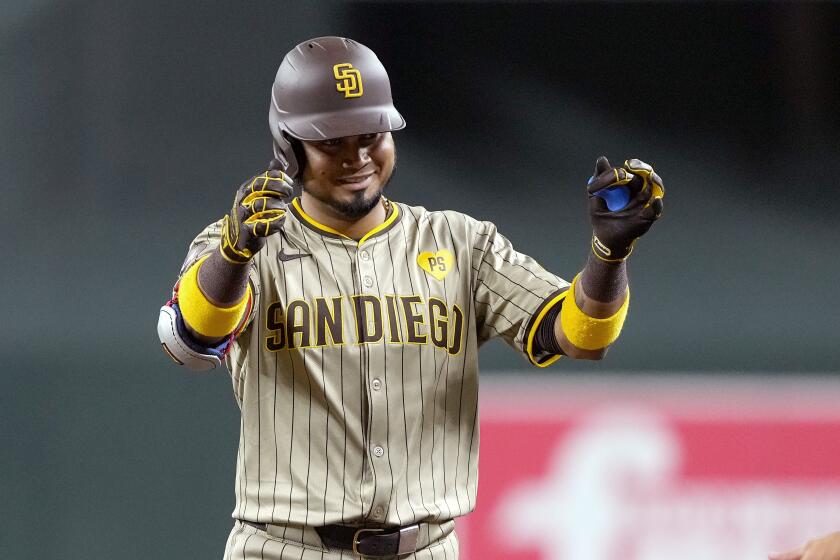Padres franchise home run leader Nate Colbert dies at 76
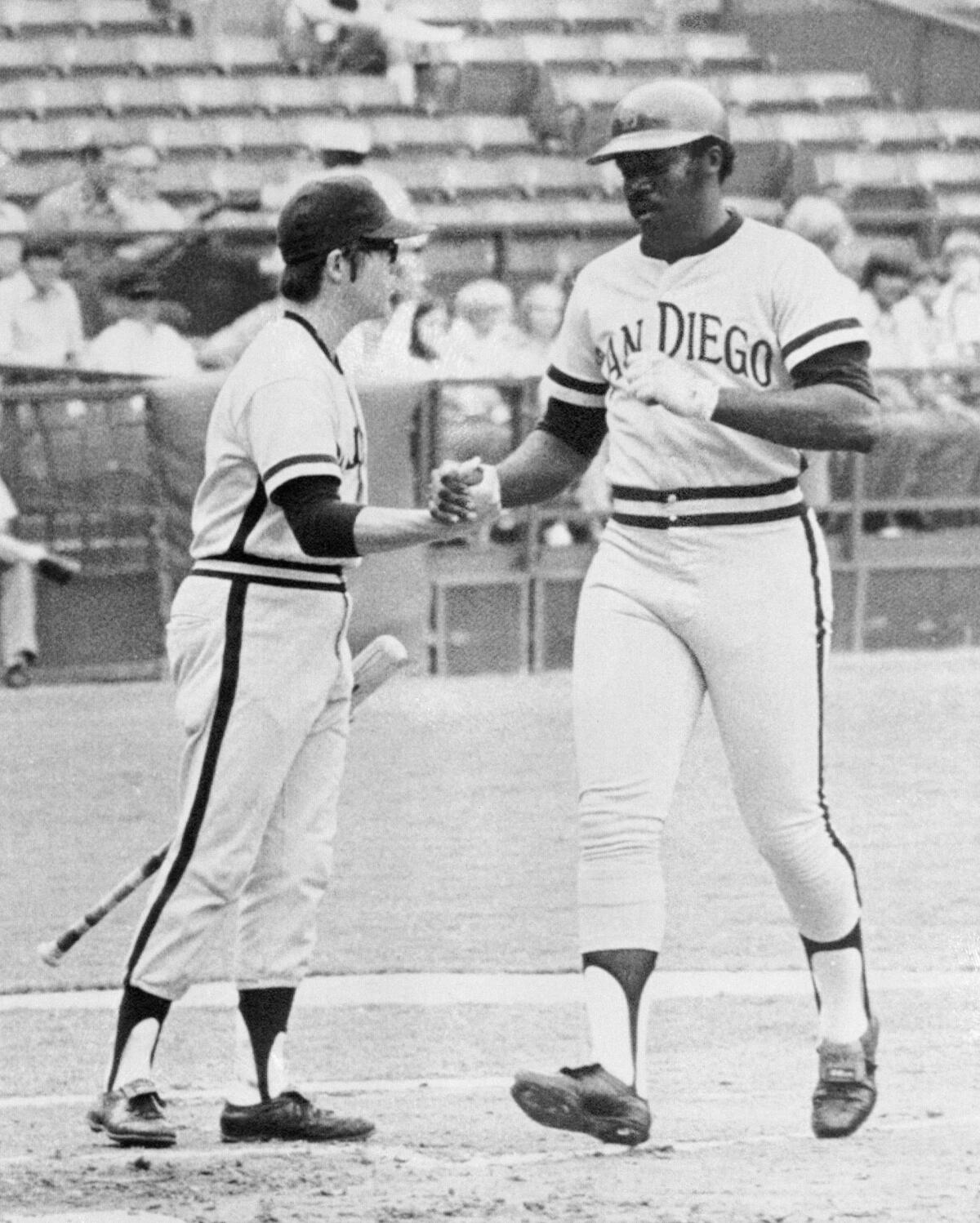
The Padres’ Nate Colbert died Thursday at 76; his five homers in a doubleheader in 1972 are tied for an MLB record with boyhood hero Stan Musial
Nate Colbert’s minor league career carried the St. Louis, Mo., native from Sarasota to Cedar Rapids to Houston’s farm system, where he shuttled between the Astros’ Double-A and Triple-A affiliates in Amarillo and Oklahoma City after making his MLB debut in 1966.
By the time he learned of the expansion draft in the fall of 1968, he was ready for something new.
“I wanted to go to San Diego,” Colbert told the Union-Tribune in April 2020. “In Triple-A, we played in San Diego and I loved the city. Seattle was too cold for me and being from St. Louis, Kansas City was only four hours away. I wanted the adventure.”
He certainly had one in San Diego.
A member of the original Padres, Colbert went on to hit a still-standing, franchise-record 163 homers. Five of those blasts arrived in one day in a doubleheader, allowing the Padres Hall-of-Famer to share a major league record with boyhood hero Stan Musial.
Colbert died Thursday morning. He was 76 years old.
“We are deeply saddened by the passing of Padres Hall-of-Famer Nate Colbert,” Padres Chairman Peter Seidler said in a statement released by the team. “Our hearts go out to his wife, Kasey, and the entire Colbert family at this very difficult time. An original member of the Padres in 1969, Nate was a trailblazer in the San Diego sports community. … Nate was devoted to his community off the field, dedicating his time to disadvantaged youth through his ministry. He was a magnetic person who will be dearly missed.”
Colbert played six seasons in San Diego, representing the Padres in the All-Star Game in three straight Midsummer Classics beginning in 1971 before he was traded to the Detroit Tigers after the 1974 season.
Along the way, he not only set the franchise watermark in home runs, he etched a place in the top-10 in RBIs (481), slugging percentage (.469), games played (866), runs scored (442) and walks (350).
“I was an everyday player,” Colbert said of his career. “I didn’t ask out of the lineup. I was hard working. I gave them great defense at first base. I was a power hitter. I hit home runs. I could run. I didn’t have a high average, but I thought I was a good, clutch player.”
He certainly was clutch on Aug. 1, 1972, as he drove in 13 runs during the five-homer day, also a major league record later tied by the Cardinals’ Mark Whiten.
The funny thing about that day, Colbert recalled decades later in a conversation with the Union-Tribune, is he wasn’t exactly feeling up to the challenge when he rolled out of bed in Atlanta.
“I played with a real bad back and that day it was the worst,” Colbert said. “My trainer took me out early and he gave me all kinds of therapy. … Our manager, Don Zimmer, said to take a few swings in batting practice and tell me what you feel. I took 10 swings and hit all 10 of them out of the ballpark.
“Zimmer said, ‘Wow.’ I said, ‘I’m in the game.’ ”
And soon he was in the record books.
Colbert drove in his first three runs that day with a first-inning homer off Ron Schueler. He added a solo homer in the seventh off Mike McQueen and belted three more in the the nightcap: a second-inning grand slam off Pat Jarvis and solo shots off Jim Hardin and Cecil Upshaw in the seventh and ninth innings.
Colbert also singled twice in the first game, bringing his total bases to 22, also a franchise record for a doubleheader.
Colbert later lamented doing so much of the heavy lifting on his own in the early years of the franchise, as was expected as the Padres began as an expansion team.
“I knew when I got there it was going to be tough to win a championship, even make the playoffs,” said Colbert, the 18th player selected in the 1968 NL expansion draft. “I knew that. But we changed so many players so often that we never got continuity because we were always changing players. Nobody played here for more than a couple years.”
Colbert was right.
Not only did the Padres never make the playoffs during Colbert’s stay, they didn’t sniff a winning record, topping out at 73 victories his last season here in 1974. By that time, a young future Hall-of-Famer in Dave Winfield — fast-tracked to the majors after the Padres selected him fourth overall in 1973 — was beginning to establish himself in the majors, with the help of Colbert and Cito Gaston.
“He’d look out for me a little bit, Nate and Cito Gaston,” Winfield recalled Thursday night.
Winfield added: “Boy, he would jump on a fastball. He’d get frustrated when they’d throw him so many curveballs. He’d make me laugh. He’d take the gum out of his mouth and throw it out to the mound. Curveball, curveball, curveball. He’d holler, ‘Throw me a fastball.’ ”
Colbert played two more seasons after the trade out of San Diego, bouncing from Detroit to Montreal to Oakland before his career came to an end after the 1976 season.
The 163 homers he hit in a Padres uniform still stand as a record ahead of Adrián Gonzalez (161), Phil Nevin (156), Winfield (154), Tony Gwynn (135) and Wil Myers (134).
Manny Machado is sitting on 108 homers as a Padre and Fernando Tatis Jr. has 81.
As he spoke with the Union-Tribune nearly three years ago, Colbert acknowledged he may not hold the record for much longer.
“Adrián Gonzalez came real close,” Colbert said then. “I was pulling for him. I thought (Hunter) Renfroe was going to beat it, but he got traded. If Tatis plays (in San Diego) a long time, he’s going to beat it — he and Manny.
“The record is breakable right now.”
Go deeper inside the Padres
Get our free Padres Daily newsletter, free to your inbox every day of the season.
You may occasionally receive promotional content from the San Diego Union-Tribune.

